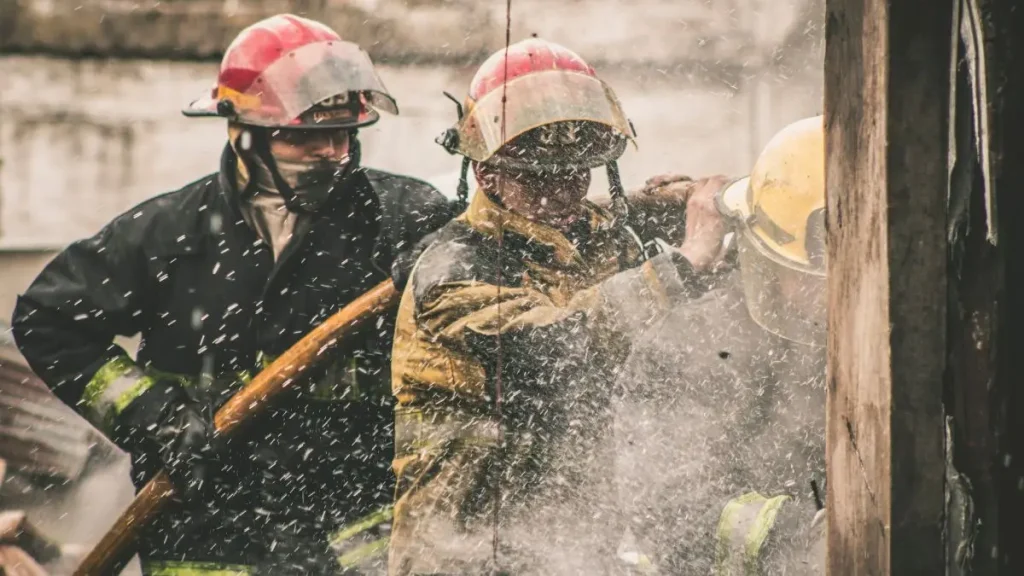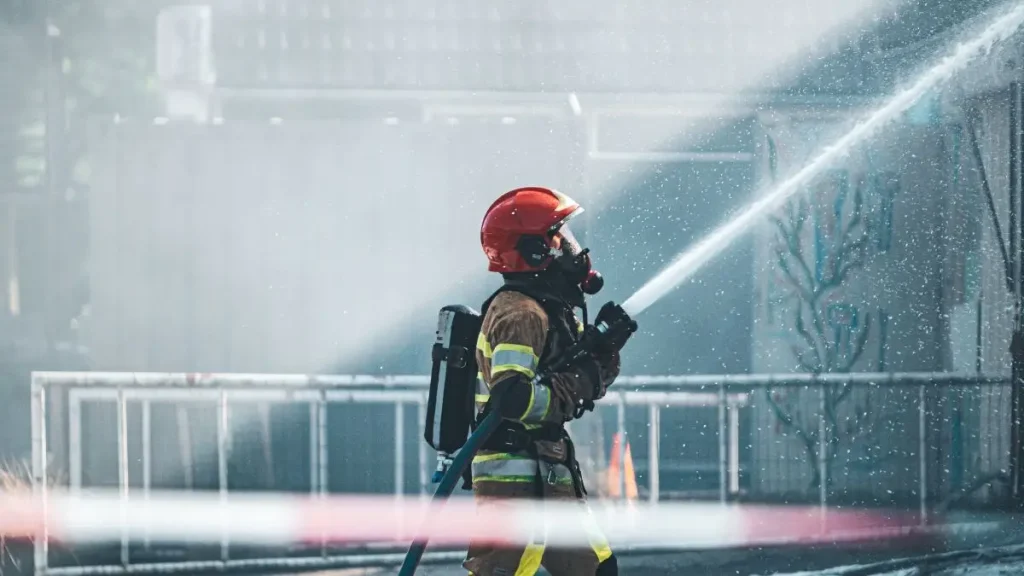Illinois Firefighters Respond to Fire at Vacant Home
When I first heard about the Decatur home fire on Sunday morning, what struck me wasn’t just that another vacant house had burned — it was how fast it all happened. Around 11 a.m., firefighters were called to a small single-story home near North Dunham and West Cerro Gordo Streets.
By the time the first engine pulled up, flames were already pushing out through the front windows. Within minutes, the crew had the fire under control — no one hurt, no neighboring houses touched.
That’s rare luck in situations like this. Vacant homes can be unpredictable; you never really know what’s inside — old wiring, debris, or even signs of someone having stayed there recently. But this time, when crews searched the property, it was empty. No victims, no rescues — just damage and questions.
What stood out to me is how smoothly the response worked. The Central Illinois Regional Dispatch Center coordinated multiple agencies, Ameren helped manage electrical hazards, and Abbott EMS stood by in case anyone needed medical help. It’s a reminder that a lot happens quietly behind the scenes when a 911 call comes in — coordination that often makes the difference between a controlled fire and a neighborhood tragedy.
For now, the Decatur Fire Department’s investigation team is trying to figure out how it all started. But if you’ve ever driven past an old vacant house in your area and thought, “That looks risky,” you’re not wrong. Fires like this start small and end fast — and it’s usually the community that pays the price.
What do you think Decatur should do about vacant homes like this — regular inspections, stricter owner accountability, or something else entirely?
Fire Erupts Near North Dunham and West Cerro Gordo Streets

When I checked WAND TV’s local update, it lined up with what residents had already seen that morning — black smoke lifting above North Dunham Street, close to West Cerro Gordo. Firefighters got the first call just before 11 a.m. and reached the scene fast.
According to WAND TV, flames were visible through the front windows when crews arrived, and the house was clearly vacant. It took only a short time to knock down the blaze, but the quick reaction mattered; older frame homes in that part of Decatur sit close together, so a few more minutes could’ve meant an entire block at risk.
It’s easy to forget how seconds count for firefighters. Their calm, practiced routine — stretching lines, forcing entry, killing power — looks effortless, but each move is life-or-death precision.
Rapid Multi-Agency Response Prevented Escalation
WCIA’s report filled in the teamwork details: the Central Illinois Regional Dispatch Center coordinated the call; Ameren handled electrical isolation; Abbott EMS stood ready on site. The combined effort turned what could’ve been a long, smoky Sunday into a short, controlled incident.
I’ve covered fires where delayed coordination meant property loss tripled. Here, communication worked exactly how it should — no confusion, no overlap, just focus. It’s the kind of efficiency that rarely makes headlines but quietly saves homes and lives.
If you’ve ever wondered why fire departments emphasize inter-agency drills, this is why. Everyone from dispatchers to EMS shares one rhythm — protect fast, contain faster.
Sadly, not every response ends this well — in a nearby DeWitt home fire earlier this year, crews arrived fast but still found one person dead inside, reminding us how unpredictable fire conditions can be.
Investigation Underway: How Did It Start?
Right now, the Decatur Fire Department’s Investigation Bureau is combing through what’s left — wiring, wall patterns, burn marks. They’ll trace where the fire started and whether it points to an electrical fault, a tossed match, or something more deliberate.
Vacant buildings always raise the “how” question louder. With no residents, ignition sources get harder to explain — and accountability gets blurry. I’ve seen cases where squatters left candles burning, and others where faulty meters sparked overnight. Until the investigators release findings, speculation only distracts from the facts they’re still collecting.
This part of the story matters because it shapes how the city manages the next one. If it’s electrical, that’s a code-inspection issue. If it’s arson, that’s law enforcement and community awareness.
For real-time updates on local fire investigations and safety alerts across Illinois, I’ve been following a WhatsApp news stream that shares verified reports directly from city agencies — worth checking out if you want quick, no-noise updates.
Why Vacant Properties Pose Fire Risks?

I’ve driven through older Illinois neighborhoods and seen the same thing — boarded windows, peeling paint, dry grass creeping up porches. Each one of those homes is a potential ignition point waiting for the wrong spark.
Vacant structures are dangerous because no one’s there to notice the first sign of trouble. A tiny short circuit can grow for hours before anyone calls 911. Firefighters also face extra risk: weak floors, cluttered rooms, and missing utilities. You step inside not knowing if the roof above you will hold another minute.
National data from the U.S. Fire Administration backs this up — vacant-building fires cause hundreds of millions in damage each year. It’s not just about abandoned property; it’s about safety for every neighbor living next door.
If you own or manage a property that’s sitting empty, simple maintenance — shutting off gas, checking wiring, locking entries — isn’t bureaucracy; it’s protection for your street.
Even occupied homes aren’t spared from fast-moving blazes — just look at the Denver Metro fire tragedy where two people and a pet didn’t make it out in time.
Community Awareness and Next Steps
For Decatur, this fire is another signal that vacant properties need attention before they turn into emergencies. Maybe it’s time for the city to expand regular inspections or create an easier way for residents to report unsafe homes. A few quick calls could prevent the next fire entirely.
The Decatur Fire Department usually releases follow-up updates once investigators close a case. I’ll be watching for that — and if you live nearby, keep an eye on the city’s official alerts.
Vacant houses might look like someone else’s problem, but as this weekend showed, the ripple effect lands on everyone. So, if there’s an empty property near you that seems risky — broken windows, wiring exposed, trash piling up — say something. It’s your neighborhood too.
What kind of action do you think would actually work here — stricter penalties for neglect, or better city-resident cooperation?
Why This Matters Beyond Decatur?
When I look at this fire, I don’t just see one vacant home in Decatur — I see a bigger story repeating across small and midwestern cities. Vacant homes have quietly become a national fire risk, not just a local inconvenience.
According to data from the National Fire Protection Association (NFPA), the U.S. sees thousands of vacant-building fires every year, leading to over $700 million in property losses. Most start the same way — no regular checks, unsecured access, aging electrical systems, or vandalism. That’s why a single spark in an abandoned Illinois house fits into a much larger pattern of preventable destruction.
Beyond property loss, these incidents drain local fire departments already working with tight budgets. Every call like this means hours of manpower, gear cleanup, and overtime — all for a building nobody even lives in anymore. It’s frustrating, but also fixable.
Some cities have started taking smarter approaches: mandatory vacant-property registration, regular inspections, and fines for neglect. Those moves don’t just reduce fires — they make neighborhoods feel watched and cared for again.
If Decatur follows that model, it could prevent future headlines like this one from even needing to be written.
In contrast, some small towns have learned the cost the hard way — like the heartbreaking Indiana County house fire that claimed two young lives overnight.
Key Takeaways
Here’s what stands out to me after looking at this fire closely:
- Fast response saved the block. The Decatur Fire Department contained a vacant home fire before it spread — that’s solid teamwork and training in action.
- No injuries, but still costly. Even when no one’s hurt, every vacant-building blaze strains public resources.
- The cause matters. Until investigators confirm what started it, the question lingers — how many more of these fires are waiting to happen?
- Vacant doesn’t mean harmless. Empty homes are silent hazards for every nearby family.
So, if you live in or around Decatur, this isn’t just another news clip. It’s a wake-up call to check what’s around you, stay alert, and push for accountability where it’s due. Fires like this don’t just “happen” — they’re often the result of small things everyone ignored.
If you were part of city planning or local council, what would you prioritize first — more inspections, stricter owner rules, or better public awareness?
If you follow community safety stories like this, you can explore more real fire reports and safety updates in our Home Incidents section. Each story highlights how quick response and awareness can save lives.
Disclaimer: Details in this article are based on official reports from the Decatur Fire Department and local news. The investigation into the fire’s cause is still ongoing, and information may be updated as new facts emerge. This article is for general awareness and should not be taken as legal or safety advice.


